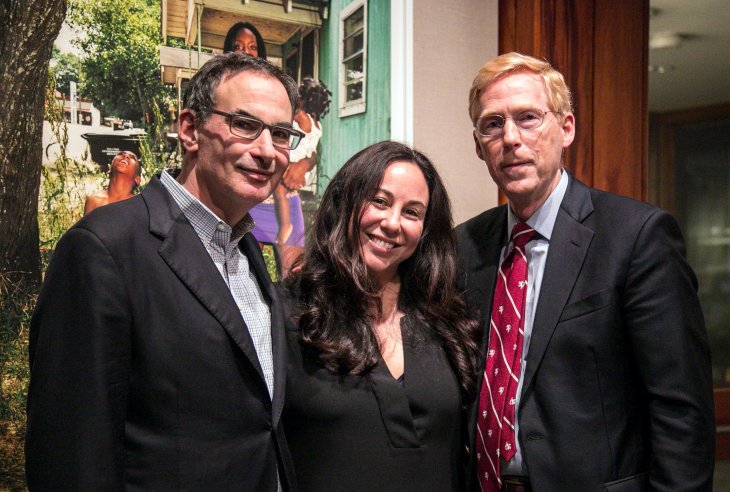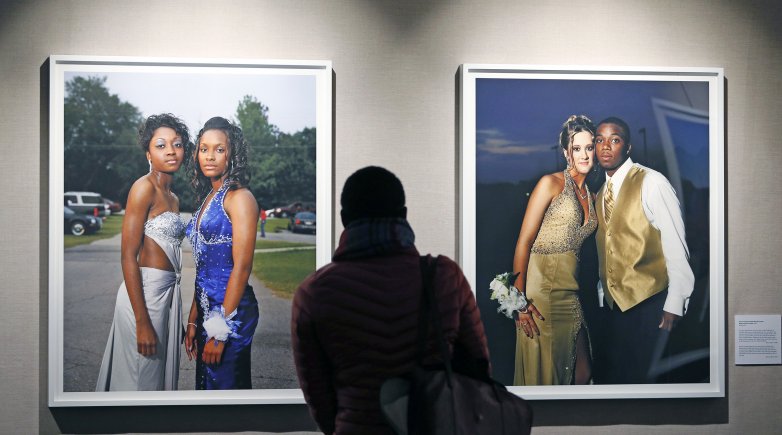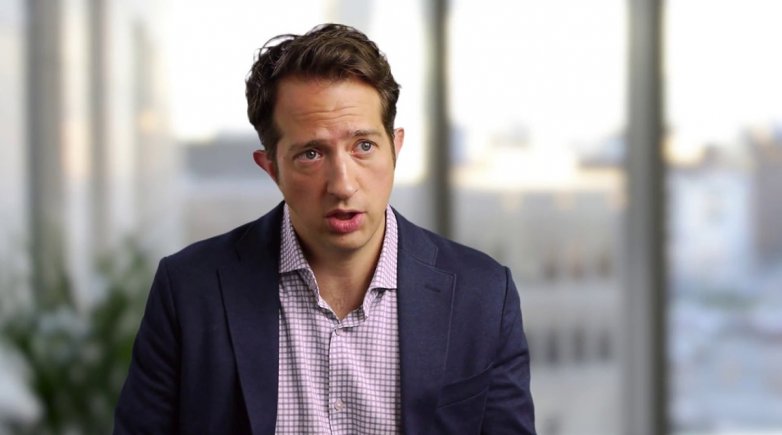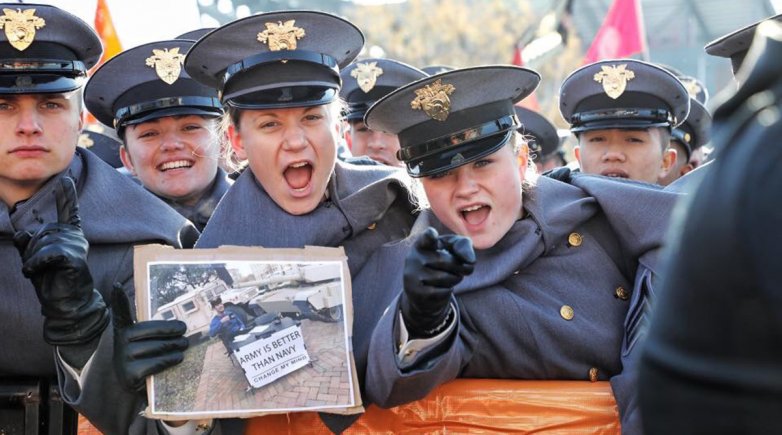Andrew Lewin

Inspiring conversation by showcasing ‘concerned photography.’
Andrew Lewin’s support of the “Southern Rites” exhibit at the Lamont Gallery is part of a long tradition at Exeter of bringing divergent voices to campus through works of art. “When I was an upper,” recalls Lewin ’77; P’07, P’10 (shown above with "Southern Rites" photographer Gillian Laub and Principal Bill Rawson), “Exeter invited Corliss Lamont, the grandson of the gallery’s founder, to speak at assembly and I was included in a subsequent student lunch with him. Corliss was certainly on the left of thinkers. But the school wanted us to have different viewpoints. That’s one of the things I internalized about Exeter.”
Corliss Lamont ’20; P’53 famously gifted painter Diego Rivera’s portrait Irene Estrella to the school’s permanent collection in 1954. At the time, he wrote to the gallery’s first director, Glen Krause, worried it may not be accepted due to the painter’s politics: “Of course, it is a completely non-political painting,” Lamont wrote, “but the hysteria is so great in this country at the present time that I feel I must check with you once more about the matter.” Krause responded, “Rivera’s readmission into the Communist Party is of no importance in the evaluation and acquisition of his painting; therefore, we will be pleased to accept your handsome gift.”
Moments like these, and an art history class with John Wharton, sparked Lewin’s lifelong passion for the arts. A retired lawyer and investment banker, Lewin is a former trustee of the International Center of Photography, which organized “Southern Rites,” and works with the Magnum Foundation publishing photography books. This is the third art show he has brought to campus, including an exhibit in 2007 of contemporary Chinese photography reflecting the country’s rapid modernization, and, in 2010, Jo Ractliffe’s landscapes of the border war fought by South Africa in Angola during the 1970s and ’80s.
Lewin not only believes in art, but in supporting the overall well-being of Exonians — particularly by exposing students to ideas of difference and offering opportunities for feelings of acceptance. “I’ve always felt that Exeter has had a very good moral touchpoint, in terms of the values that it has stood for,” Lewin says. “I remember when I was I here, they gave the John Phillips Award to a judge who helped desegregate South Boston. At Exeter, they’ve always encouraged different voices, as opposed to one voice, even if, at times, it’s a different approach.”
Combining notions of acceptance and deep moral values with action, Lewin was keen to incorporate the show into Exeter’s curriculum and inclusivity efforts, rather than promote it as a stand-alone exhibition. “Exeter was really formative for me,” he says. “It gave me the tools to really look at things. What we are doing in this art gallery, with the classes, it is very much the Harkness method in the sense that students are teaching themselves. … They are reacting to the work, discussing it amongst themselves. I’m hopeful that there will be lots of interchange and they will teach each other.”
Laub’s work also aligns with Exeter’s non sibi credo. “I like photographers who try and effect change and bring conditions to our attention,” Lewin says. Photography, unlike other artistic mediums, is particularly adept at documenting the world as it is — it literally captures a moment. When the camera is focused on drawing public attention to social issues, the work is known as “concerned photography.” Think of monographs by Walker Evans and Dorothea Lange, who humanized the impact of the Great Depression. “Photography is a medium that can help us understand and clarify issues, and concerned photography can bring things to the attention of people in a way that’s different,” Lewin says. “The photographs force us to understand certain basic dynamics. This work has a racial dynamic, but also an economic dynamic and class dynamic.”
Lewin hopes “Southern Rites” will make a lasting impact. “As rabbi and Jewish theologian Abraham Joshua Heschel said, ‘Indifference to evil is as bad as evil itself,’” Lewin says. “I want students to understand that they can in fact effectuate change. I think they will.”
Editor's note: This article first appeared in the winter 2019 issue of The Exeter Bulletin.


